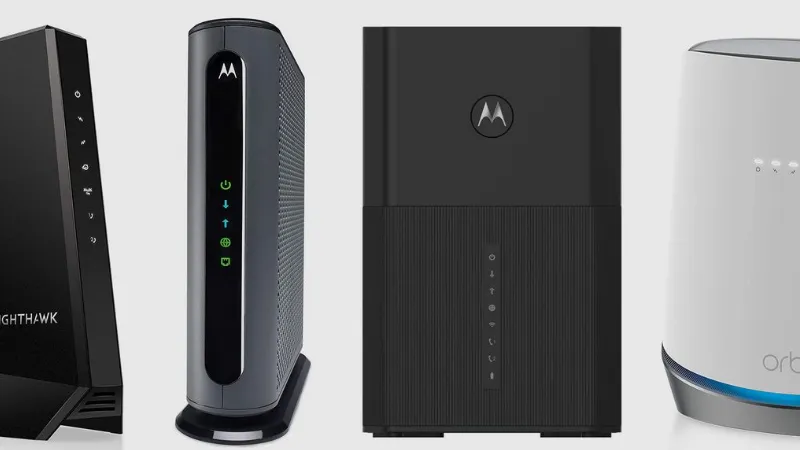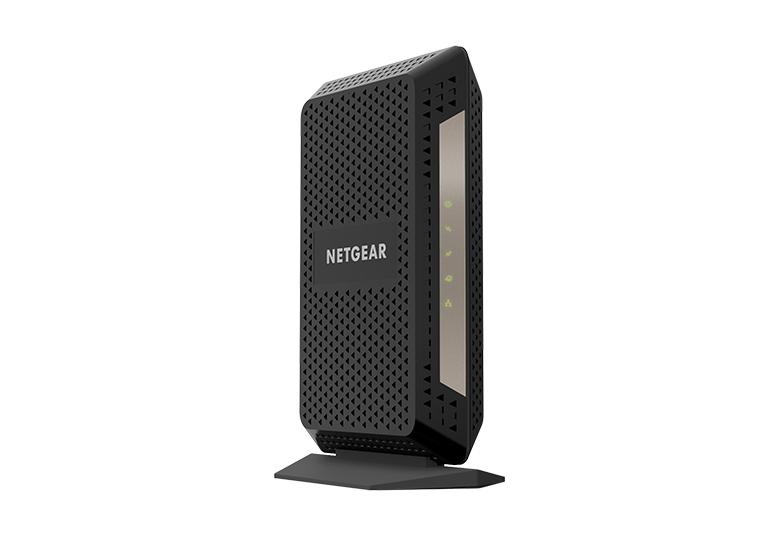
If you’re wondering how long do modems last, know that the majority of them can be used for up to ten years because ISPs aren’t known for implementing faster Internet connections quickly.
You might therefore be able to use your old modem for another ten years, depending on where you live, unless it succumbs to a hardware failure. Otherwise, the potential upgrade to 1Gbps and higher may force you to finally give up your outdated modem and replace it with a more modern modem that supports faster Internet speeds.
Please read on.
Table of Contents
The Average Lifespan of a Modem
The typical lifespan of a modem is four to seven years, which is longer than you might anticipate.
Additionally, it is longer than the average online article will advise you to wait before replacing it. Change your modem before you really need to, according to your ISP.
Most of the time, they do this to try to sell you a new one. or will do so while receiving a commission.
In most cases, there are only a few reasons where you will need to replace your modem:
- When it’s broken, which is the most obvious.
- You switch Internet service providers.
- Your old modem cannot handle your upgraded Internet plan’s/speed’s requirements.
- You’ve established that your slow speeds are being caused by your modem.
- You wish to utilize services, such as VoIP, that your modem is unable to support.
Signs and Reasons That You Need to Replace Your Modem
Modems have a limited lifespan like most other pieces of hardware. Your modem’s functionality and performance may start to decline due to a number of factors.
Although no two modems are the same, they all carry out functions that are comparable or even the same in order to access the Internet.
So, even though this isn’t a comprehensive list, it should be a pretty good summary of the primary causes to think about replacing your modem.
It Breaks Or Experiences Problems
The modems in your home suffer from power surges and disruptions while they are left unattended, collecting dust, heat, and humidity. Each of these elements affects how well the tool is maintained.
Your modem will eventually stop functioning altogether due to one of these factors or a combination of them.
If this is the situation with your device, fixing it is not really an option. Most people only have the choice to replace it once it is no longer functional.

You Change Internet Service Providers (ISPs)
Tragically, not all computers have modems. Some modems might be compatible with a variety of ISPs, while others might only be.
The availability of various Internet options from ISPs, such as DSL vs. cable. For instance, a cable Internet connection and a DSL modem are incompatible with one another. [1]
Although two ISPs may offer the same kind of Internet, it is still a good idea to check your new ISP’s compatible modem list before switching ISPs. particularly if you just recently bought your modem.
If you find yourself in this situation, be sure to visit our certified modems page, where you can find approved modems for various ISPs.
Your Modem Can’t Handle Your New Internet Speed.
Even if your modem is in perfect working order, it might only be able to support speeds of 200 Mbps, for instance.
More than half of your bandwidth will be wasted even if you upgrade to a 500 Mbps Internet plan because you can still only reach 200 Mbps with that modem.
Whatever you do, the only way to utilize your new 500 Mbps bandwidth in this situation is to purchase a modem that can handle it.
You Have Confirmed Your Modem Has Degraded Performance
Using the previous example, if your modem can handle 200 Mbps but you can only get 50 Mbps, there may be a problem.
The best thing to try in this situation is to connect your modem directly to your computer via ethernet cable and run a speed test because there are many things that can go wrong between your modem and your devices obtaining an Internet connection.
The modem is probably failing, so replacing it would be the best course of action if you continue to experience poor performance. As we previously mentioned, fixing it is typically neither worthwhile nor even feasible.
You Want to Use Services Your Modem Doesn’t Support
Modems with eMTA are necessary for some specialized Internet services, such as VoIP applications. eMTA is an adapter that transforms digital converting VoIP signals to analog signals for a connected phone. a feature lacking in standard modems. [2]
You will require a new modem if you must utilize this kind of service.
A suggestion is to find out if your ISP provides modems with eMTA. If so, they might offer it to you without charge. This is due to the fact that they typically do not support any third-party modems that you can purchase separately with eMTA.
In some cases, such as Comcast Xfinity, this rule is broken and third-party modems are supported.
Do You Actually Need a More Powerful Modem?
There are two situations where a better modem would be beneficial. A refreshed model is not a bad idea if the old one has become slow (this can happen with age), but you must make sure that the modem and not the router is to blame. Be very aware that even if you purchase a powerful modem, the Internet speed won’t necessarily increase because the ISP sets the limit. If your ISP can offer you a faster Internet speed, that is the second justification for upgrading your modem. By doing this, the new modem will no longer be the speed stumbling block and will permit the router to receive the faster speed.
What’s the Point of Multi-port Modems?
Some modems, like the vintage Motorola MB8600 or the Arris SB8200, had more than one Gigabit port, enabling connections of 2Gbps and higher when they were all connected together. In this manner, you could theoretically go above 1Gbps if you had the appropriate hardware (such as a dual-WAN router). However, keep in mind that only a very, very small percentage of people—typically business owners—can access these speeds due to specific requirements. Therefore, I wouldn’t go out and impulsively purchase such a modem and instead wait impatiently for the ISP to provide you with this level of performance in a few months. If it occurs in the upcoming ten years, I will be shocked. But even with a 1Gbps connection, these modems can perform marginally better, so you might want to take them into consideration if your Internet is unstable near the router. However, confirm once more that the problem is actually at the modem level because, overwhelmingly, it rarely is.
How Long Will a Rented Modem Last?
What if your internet service provider let’s you rent a modem? Will anything change in terms of how long it lasts as a result?
The rules of the game change slightly if you rent your modem from your ISP. You won’t have to worry as much about keeping your modem functional for a long time, which is why.
Hear me out if you’re unclear about this.
If your rented modem malfunctions, your ISP will provide you with a new one. If the modem you’re renting becomes outdated, they’ll also give you an upgraded version. All of this is covered by the monthly fee you pay to rent a modem.
With that said, you should still take care of your rented modem by following the steps Ioutlined in this article.Your internet service provider might charge you for a replacement if your rented modem frequently malfunctions.
It should last as long as a personal modem if you take good care of your rented modem. Having said that, you won’t likely require it. Your ISP will likely replace the modem you rented more frequently than every ten years.
FAQs
Will Buying a New Modem Increase My Internet Speed?
Your modem and your internet plan have the biggest impact on your internet speed. Your connection speed won’t automatically go up just because you upgrade to a faster modem. To find out what kind of modem you need to get the internet speed you’re paying for, check with your ISP.
How Often Should I Replace My Modem’s Coaxial Cable?
You won’t frequently need to replace the cable that connects your modem to the wall because coaxial cables can last for decades. Having said that, you ought to have a backup to use if you think there might be a connection problem.
How Often Should I Replace My Wi-Fi Modem?
You shouldn’t replace your modem until you notice a decline in performance, whether you have a standalone modem or a router-modem combination unit. If you choose to upgrade to a faster internet plan, you might need to replace your router and modem.
Bottom Line: How Long Do Modems Last?
Modems are incredibly dependable technology. And you don’t need to replace them as frequently as you might think.
But in addition to being outdated or malfunctioning, there may be other causes to purchase a new modem. like upgrading to a faster Internet speed than what your current modem can support.



